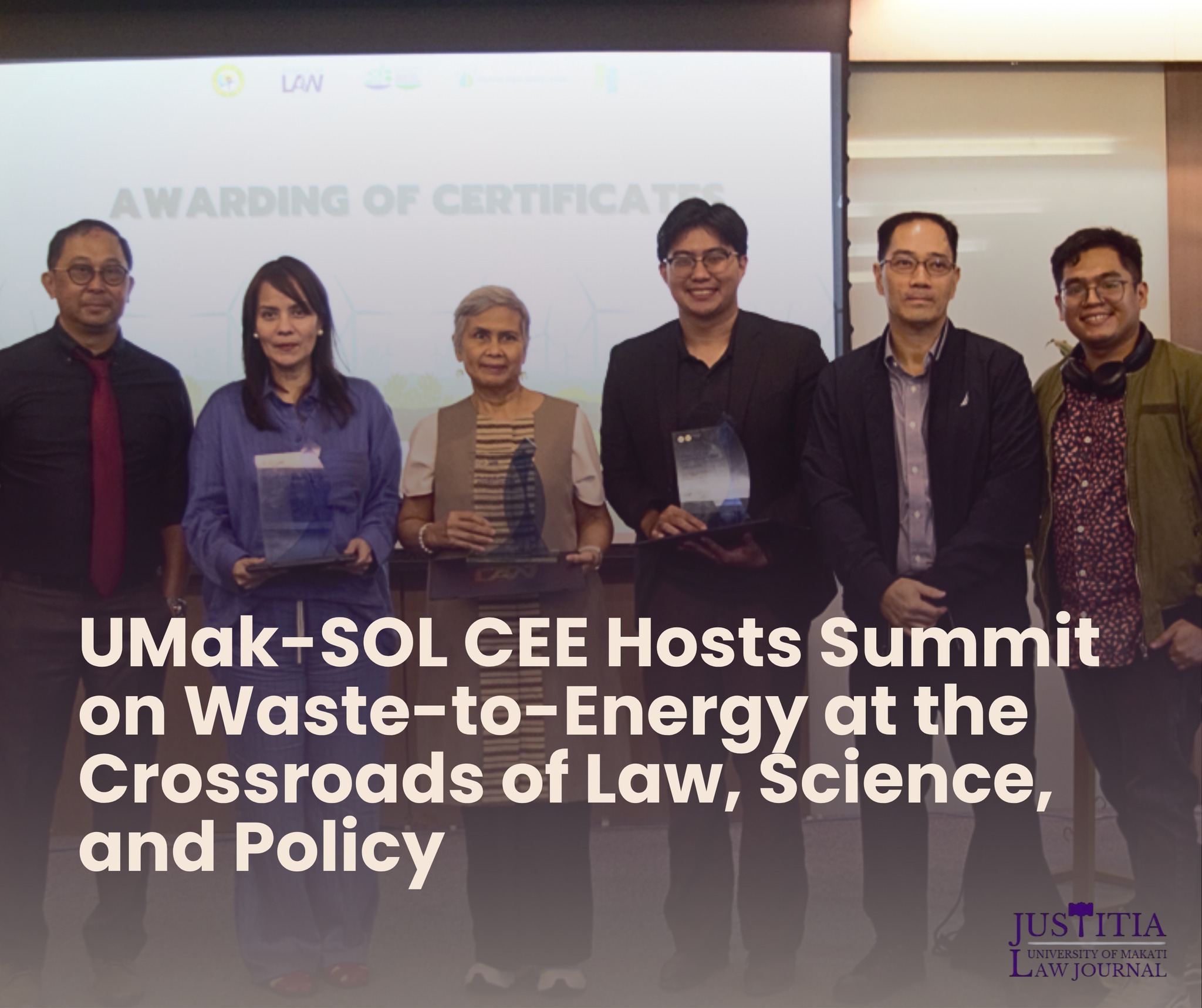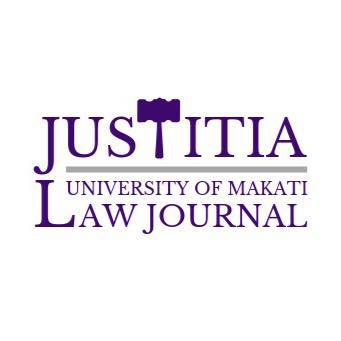UMak-SOL CEE Hosts Summit on Waste-to-Energy at the Crossroads of Law, Science, and Policy
Written by Potri Norania Hadji Jamel
Photo by Beatrix de Guia

The University of Makati–School of Law (UMak-SOL), through its Center for Energy and Environment (CEE), gathered campaigners, lawyers, scientists, and journalists in its Waste-to-Energy (WtE) Summit on September 25, 2025. The aim was to explore solutions to the country’s ballooning solid waste problem while upholding constitutional and statutory guarantees to a balanced and healthful ecology. What emerged was not a single prescription but various narratives, between expediency and precaution, technology and justice, short-term disposal and long-term sustainability.
UMak-SOL Dean Jord Jharoah Valenton opened the summit, underscoring the law school’s role in convening critical dialogues at the intersection of law and the environment.
The first speaker, Ms. Niña Marie Estenzo of the Philippine Earth Justice Center grounded the discussion in community wisdom, barangayan and damay-damay, against the backdrop of the latest Intergovernmental Panel on Climate Change (IPCC) report. Unless greenhouse gas emissions are cut immediately and drastically, the 1.5°C threshold will be breached, with devastating consequences for health, agriculture, and survival. Her urging to “download the sense of responsibility” and to “work in our own spheres of influence” called for just energy transitions that are deeply rooted in shared duty.
Atty. Gloria Estenzo-Ramos of RCE-Cebu, echoing her decades of legal advocacy, reframed the issue as one of stewardship. She invoked the Supreme Court’s landmark decision in Oposa v. Factoran (G.R. No. 101083, 1993), where children asserted their right to a livable environment. Atty. Estenzo-Ramos asked to compel industries and agencies to honor their mandates, leveraging science and grassroots mobilization to make polluters accountable. She did not shy away from the “ugly,” that the Philippines remains Asia’s deadliest country for environmental defenders, and number one in disaster vulnerability. Yet she held fast to the “hopeful,” that every individual, and every act, matters.
Rappler’s John Sitchon turned the lens to reportage. He recalled how puff pieces often paint WtE as a silver bullet, even as environmentalists resist its rollout in various places. He anchored his remarks on the Clean Air Act and the Ecological Solid Waste Management Act, both of which enshrine bans on incineration and mandate segregation at source.
The afternoon session brought science and policy to the fore. Dr. Ian Tabañag of DOST-PCIEERD described the state of WtE research in the Philippines: 13 projects are registered under the DOE, with thermal conversion of municipal solid waste raising air pollution concerns. He stressed that WtE should remain the last resort in the waste hierarchy, after reduction, segregation, recycling, and composting.
Dr. Jorge Emmanuel of Silliman University took a sharper stance. He warned that high-heat WtE processes such as combustion, gasification, pyrolysis, emit dioxins harmful to human health. Current Philippine requirements rely on periodic testing, which underestimates emissions compared to continuous monitoring. Far from being carbon-neutral, WtE risks locking the country into unsustainable finance and climate-worsening dependence on waste production. The alternative, Dr. Emmanuel argued, is that which is mandated under the Ecological Solid Waste Management Act of 2000: barangay-level materials recovery facilities, segregation at source, composting, and higher recycling rates.
EcoWaste Coalition’s Shey Levita described WtE as a “false solution,” citing its violation of the incineration ban, toxic emissions, high costs, and social consequences, from job loss for waste pickers to displacement of communities. Finally, Atty. Christopher John Menguito of the Philippine Earth Justice Center grounded the debate in legal doctrine, citing RA 9003, the Clean Air Act, and the Renewable Energy Act. For Atty. Menguito, the real challenge is enforcement, ensuring agencies do not bend under corporate pressure and that communities understand the stakes of policy choices.
Taken together, the summit’s discourse reveals a legal and ethical crossroads. On one hand, the government faces mounting waste volumes and public pressure for “quick fixes.” On the other, constitutional rights, statutory bans, and scientific warnings caution against shortcuts that externalize costs onto human health, marginalized communities, and future generations.
As the Philippines continues to grapple with the twin challenges of waste management and climate change, it is clear that the legal profession must be at the forefront of driving systemic change. With institutions like the UMak CEE leading the way, the hope is that legal expertise, when combined with scientific research and community-driven action, can help propel the country toward a sustainable and equitable future.
